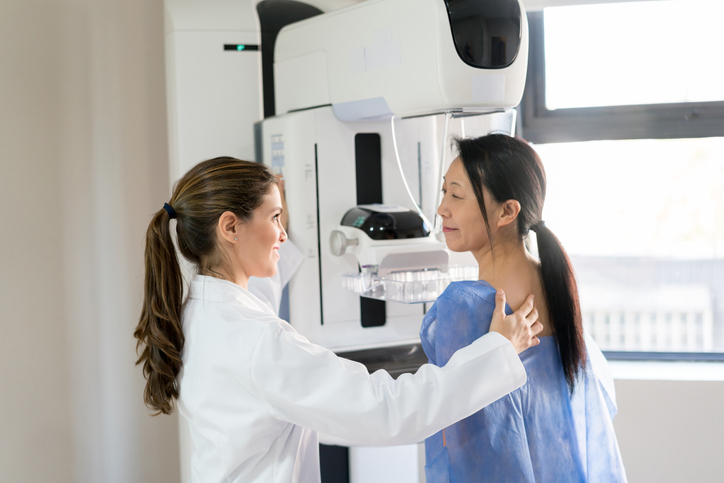The first few months of the COVID-19 pandemic caused the number of breast cancer screenings to decline significantly across the country, the Australian Institute of Health and Welfare (AIHW) has revealed.
A report from the AIHW looked at the national screening programs for breast, bowel and cervical cancer and found there were around 145,000 fewer screenings conducted by BreastScreen Australia from January to June this year when compared to the same time in 2018.
Spokesperson for the AIHW, Richard Juckes, said more than 70,000 mammograms were performed in March 2020, which fell to around 1,100 in April.
“By comparison, in April 2018, more than 74,000 mammograms were carried out,” he said,
“BreastScreen Australia services were paused in late March in response to the pandemic. Most services reopened within a month, and all services are now operational, with appropriate measures in place to protect clients and staff.”
A report from Cancer Australia from September also found imaging procedures for detection of breast cancer decreased by 37% in the period between March and April, with a “full recovery” of numbers in June, when compared to 2019.
Keep up to date with screenings: Cancer Council
Cancer Council ACT CEO Sandra Turner said it is vital people keep up to date with required screenings for breast cancer, as well as bowel and cervical cancers.
“If people do get a message from Breast Screen… to go and have their check then we strongly encourage them to go and do it,” Ms Turner said.
“It’s most important that everybody is screened for breast and also bowel and cervical [cancers].
“While we’re in a relatively safe period to be able to do that, then it’s most important to not leave those tests any longer than need be.”
Ms Turner also encouraged anyone with any concerns to contact their GP.
Mr Juckes stressed the importance of cancer screening and said evidence shows early detection saves lives.
“Measures are in place to ensure people can catch up on their screening safely during COVID-19,” he said.
Effects unclear for cervical, bowel screening programs
While AIHW data shows a drop in cervical screening tests in March and April, rates rose again in May and June. Cervical screenings require an in-person consultation.
The AIHW says it was expecting the drop in cervical screenings due to the National Cervical Screening Program changing to recommend a screening every five years instead of two; however, it is “not yet possible” to determine the effect of the pandemic on testing rates.
Mr Juckes said there was no clear effect from the pandemic on screening rates for the National Bowel Cancer Screening Program, which involves home testing kits.
“While this does not involve participants leaving their homes to complete the test, or to get their results, people do need to mail their completed test kit for laboratory testing,” he said.
“Ongoing monitoring will be important to better understand how the pandemic has affected Australians’ health now and into the future.”



